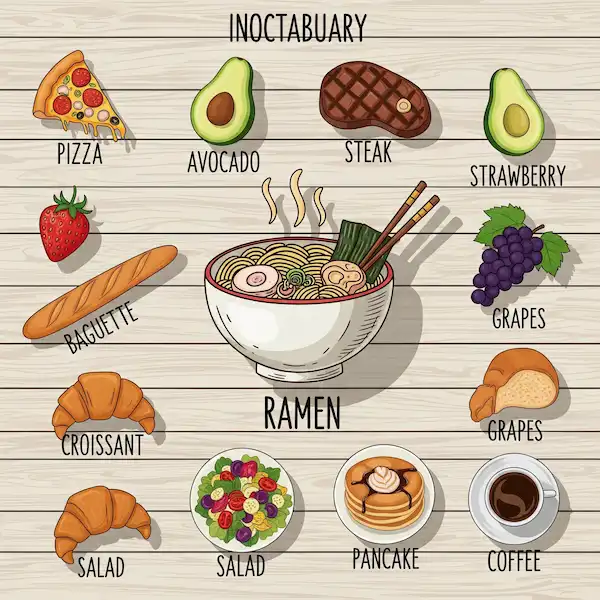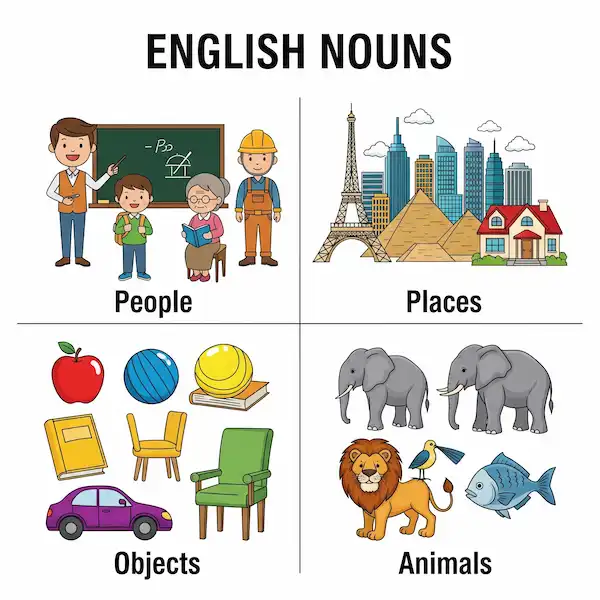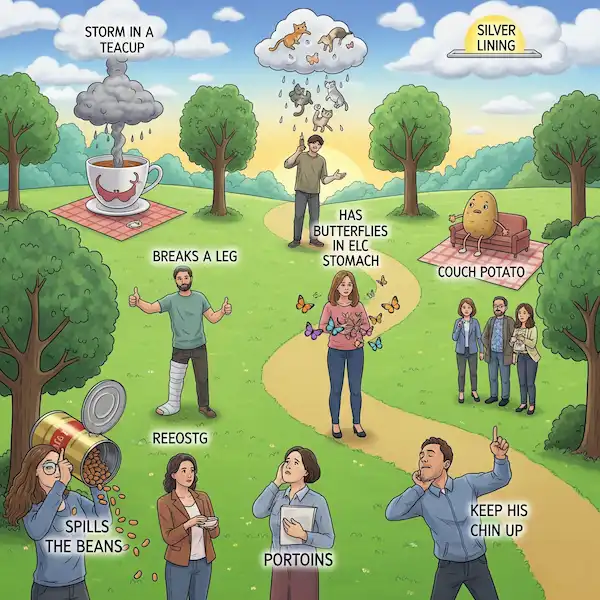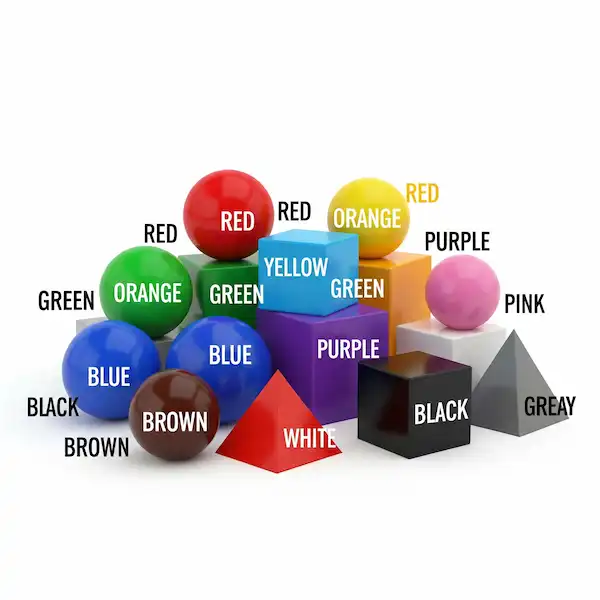50 Essential Business English Words for the Office: Your Guide to Professional English
Navigating the world of business can feel like learning a new language, and in many ways, it is! If you’re an intermediate English learner, mastering key vocabulary is crucial for success in any professional environment. This article will equip you with 50 essential business English words and phrases, complete with clear definitions, practical examples, and helpful tips to boost your confidence and communication.
Getting Started: Understanding the Office Landscape
Let’s begin with some fundamental business English words that describe the places and people you’ll encounter.
- Office: The place where people work, usually in a building.
- Example: “I’m going to the office early tomorrow for a meeting.”
- Think: A dedicated workspace.
- Colleague: A person you work with, a co-worker.
- Example: “My colleague, Sarah, helped me with this project.”
- Think: A teammate at work.
- Manager: The person responsible for a team or department.
- Example: “You need to ask your manager for approval.”
- Think: The boss of a specific team.
- Employee: A person who works for a company or organization.
- Example: “Our company has over 200 employees.”
- Think: A worker.
- Department: A division of a large organization, like “Sales Department” or “Marketing Department.”
- Example: “I work in the Human Resources department.”
- Think: A specific section or group within a company.
Everyday Office Actions
These business English words describe common activities and tasks you’ll perform or discuss.
- Meeting: A gathering of people to discuss something.
- Example: “We have a team meeting every Monday morning.”
- Think: A discussion session.
- Schedule: A plan of activities or events and the times they will happen.
- Example: “Please check your schedule for next week.”
- Think: A timetable.
- Deadline: The latest time or date by which something must be completed.
- Example: “The deadline for this report is Friday.”
- Think: A due date.
- Project: A planned piece of work that has a specific purpose.
- Example: “I’m working on a new marketing project.”
- Think: A task or assignment.
- Task: A piece of work to be done.
- Example: “My main task today is to reply to all emails.”
- Think: A small job.
- Report: A written document that gives information about a particular subject.
- Example: “I need to prepare a sales report for the manager.”
- Think: An informative document.
- Presentation: A formal talk to an audience, often with visuals.
- Example: “She gave an excellent presentation on the new product.”
- Think: A formal speech with slides.
- Communicate: To share information, ideas, or feelings with others.
- Example: “It’s important to communicate clearly with your team.”
- Think: To talk or exchange information.
- Collaborate: To work together with others to achieve a goal.
- Example: “We need to collaborate more on this project.”
- Think: To work as a team.
- Delegate: To give a task or responsibility to another person.
- Example: “The manager decided to delegate the filing task to a new intern.”
- Think: To assign work.
Tools and Resources
Understanding the common resources and business English words available in an office.
- Computer: An electronic device for storing and processing data.
- Example: “My computer crashed, and I lost some work!”
- Think: Your primary work machine.
- Software: Programs used by a computer.
- Example: “We use special software for graphic design.”
- Think: Computer programs.
- Hardware: The physical parts of a computer, like the keyboard, monitor, etc.
- Example: “We need to upgrade our office hardware.”
- Think: Physical computer parts.
- Network: A system of connected computers that allows sharing of information.
- Example: “The office network is down, so we can’t access shared files.”
- Think: Connected computers for sharing.
- Printer: A machine that prints text or images on paper.
- Example: “The printer is out of ink again!”
- Think: Paper output device.
- Scanner: A device that converts images, printed text, or objects into digital form.
- Example: “I need to scan this document and email it.”
- Think: Digital conversion device.
- Database: An organized collection of data.
- Example: “All customer information is stored in our database.”
- Think: Data storage system.
- Spreadsheet: A computer program (like Excel) used for organizing and analyzing data in rows and columns.
- Example: “I’ve put all the budget figures into a spreadsheet.”
- Think: Grid for numbers and data.
Key Business Concepts
These business English words help describe the goals, strategies, and financial aspects of a business.
- Profit: Financial gain; the difference between the amount earned and the amount spent.
- Example: “The company made a huge profit last quarter.”
- Think: Money earned after expenses.
- Loss: When expenses are greater than revenue.
- Example: “We experienced a small loss in sales this month.”
- Think: Money lost.
- Revenue: The total amount of money a company receives from its sales.
- Example: “Our annual revenue increased by 10%.”
- Think: Total income from sales.
- Budget: An estimate of income and expenditure for a set period.
- Example: “We need to stick to the marketing budget.”
- Think: Financial plan.
- Strategy: A plan of action designed to achieve a long-term or overall aim.
- Example: “What is our strategy for entering new markets?”
- Think: A long-term plan.
- Goal: The object of a person’s ambition or effort; an aim or desired result.
- Example: “Our main goal is customer satisfaction.”
- Think: A target or objective.
- Marketing: The action or business of promoting and selling products or services.
- Example: “Our marketing team is launching a new campaign.”
- Think: Promoting products/services.
- Sales: The activity or business of selling products or services.
- Example: “Our sales figures were very strong last year.”
- Think: Selling goods/services.
- Client: A person or organization using the services of a professional person or company.
- Example: “We are meeting with a new client next week.”
- Think: A customer, especially for a service.
- Customer: A person or organization that buys goods or services from a store or business.
- Example: “Good customer service is very important to us.”
- Think: Someone who buys something.
- Invoice: A list of goods sent or services provided, with a statement of the sum due for these.
- Example: “Please send the invoice to the accounting department.”
- Think: A bill.
- Receipt: A piece of paper that shows that you have paid for something.
- Example: “Keep your receipt for your expenses.”
- Think: Proof of payment.
Professional Communication & Etiquette
These business English words will help you navigate professional interactions politely and effectively.
- Courtesy: Politeness, respect, and consideration for others.
- Example: “Always show courtesy to your colleagues and clients.”
- Think: Good manners.
- Apologize: To say sorry for something.
- Example: “I must apologize for the delay in my response.”
- Think: To express regret.
- Feedback: Information about reactions to a product, person’s performance of a task, etc., used as a basis for improvement.
- Example: “We welcome your feedback on this proposal.”
- Think: Constructive criticism or opinion.
- Propose: To suggest a plan or idea.
- Example: “I would like to propose a new solution to this problem.”
- Think: To suggest.
- Negotiate: To try to reach an agreement or compromise by discussion with others.
- Example: “We need to negotiate a better price with our suppliers.”
- Think: To discuss to reach an agreement.
- Confirm: To establish the truth or correctness of something previously believed, suspected, or rumored to be the case.
- Example: “Can you confirm the meeting time?”
- Think: To check and make sure.
- Clarify: To make something clearer or easier to understand.
- Example: “Could you please clarify what you mean by that?”
- Think: To explain further.
- Approve: To officially agree to or accept something.
- Example: “The manager needs to approve the budget.”
- Think: To give permission.
- Reject: To dismiss as inadequate, unacceptable, or faulty.
- Example: “The proposal was rejected due to high costs.”
- Think: To refuse or say no.
- Reschedule: To change the time or date of a planned event.
- Example: “We had to reschedule the meeting because of a conflict.”
- Think: To change the time.
Important Human Resources Terms
Understanding these business English words is key for your career development.
- Resume (CV – Curriculum Vitae): A brief account of a person’s education, qualifications, and previous occupations, typically sent with a job application.
- Example: “Please attach your resume when applying for the position.”
- Think: Your work history document.
- Interview: A formal meeting at which a job applicant is asked questions to see if they are suitable for a position.
- Example: “I have a job interview next Tuesday.”
- Think: A job discussion.
- Promotion: The action of being raised to a higher or more important position or rank.
- Example: “She received a promotion to senior manager.”
- Think: Moving up in your job.
- Resign: To voluntarily leave a job or office.
- Example: “He decided to resign from his position to start his own business.”
- Think: To quit your job.
- Training: The action of teaching a person a particular skill or type of behavior.
- Example: “All new employees receive extensive training.”
- Think: Learning new skills for work.
Additional Helpful Content for Intermediate Learners
- Practice Regularly: The best way to learn these words is to use them! Try writing sentences, practicing conversations with a language partner, or even talking to yourself in English about work-related topics.
- Context is Key: Don’t just memorize definitions. Pay attention to how these words are used in real sentences and different situations.
- Listen Actively: Watch English business news, podcasts, or TV shows. You’ll hear these words used naturally.
- Keep a Vocabulary Notebook: Write down new words, their definitions, and example sentences. Review it often.
- Don’t Be Afraid to Make Mistakes: Everyone makes mistakes when learning a new language. It’s part of the process! Focus on communicating your message.
Practice Makes Perfect
Here is a PDF worksheet you can download to practice your understanding of business English words. The answers are on a separate page.
Additional Helpful Links
- Study about English word for traveling and being at a restaurant – English for Travel: Hotel, Airport & Restaurant Words
External Links for Authoritative Sources
To further enhance your E.E.A.T. and understanding of business English, explore these reputable resources:
- The Economist: https://www.economist.com/ (Excellent for advanced business vocabulary and current affairs)
- Harvard Business Review: https://hbr.org/ (Offers insightful articles on business management and strategy)
- BBC Learning English – Business English: https://www.bbc.co.uk/learningenglish/english/features/business-english (Specifically designed for English learners focusing on business contexts)
- Cambridge Dictionary: https://dictionary.cambridge.org/ (Reliable definitions, examples, and pronunciation)
- Oxford Learner’s Dictionaries: https://www.oxfordlearnersdictionaries.com/ (Tailored for English language learners with clear explanations)
By integrating these 50 essential words into your vocabulary and consistently practicing, you’ll be well on your way to confident and effective communication in any business and office setting! Good luck!














